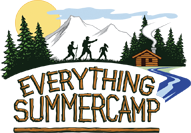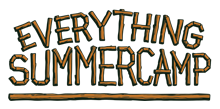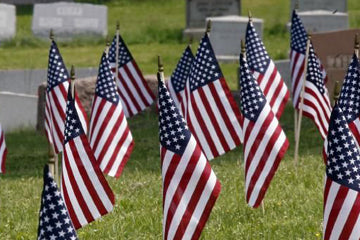Hey, Happy Hikers!
Summer’s just arriving. Time to get out and hit your local nature trails! Nothing hits the spot like a vigorous walk on a lush, woodsy adventure or the sights along a rocky terrain. And nobody knows this better than summer camps. So strap on your trail shoes when you head off for your summer stay this year! And in the meantime, learn a little about this great hobby and fun camp activity right now.
 The history of Hiking is as old as humans, really. Since our days of hunting and gathering as nomadic cultures we wandered the planet in search of ever-moving food sources giving us a natural means of cardio maintenance. And the incentive of survival forced us to traverse rough terrain despite the efforts required.
The history of Hiking is as old as humans, really. Since our days of hunting and gathering as nomadic cultures we wandered the planet in search of ever-moving food sources giving us a natural means of cardio maintenance. And the incentive of survival forced us to traverse rough terrain despite the efforts required.
Hiking gets your blood pumping and makes you feel good. Here’s a quick look at the benefits that Hiking offers us.
Hiking Makes You Happy
Delivering an aspect of physical exertion that treadmills and exercise bikes cannot, trails incorporate beautiful winding turns that feature new landscapes and provide a treat for your eyes. Trails provide an abundance of mental health benefits as well; the air you breathe in is much crisper and brings a fresh supply of oxygen to your brain, resulting in a happier you.
Magic Healer
The physical exertion you put out works wonders for your body. Not only does it reduce your risk of heart disease, it also lowers your blood pressure—a pair of unwanted issues among some leading health problems in our modern world.
Hiking: The Jogging Equivalent
Hiking—especially hiking uphill—is similarly efficient exercise for burning calories as jogging is and helps you lose weight. The pressure that hiking puts on your bones helps to strengthen your bone structure and helps reduce the risk of osteoporosis. It tones your muscles and does good things for your cardiovascular system too. Really, it just increases your overall fitness.
There are lots of things you can do to make a hike a really good time. We have a slew of hiking gear here at Everything Summer Camp to help you enjoy your outing to its max. From hiking boots to water bottles, backpacks, and Hydration packs, we’ve got everything you need. Have fun Hiking at camp and, as always, thanks for reading, Hikers.
- John



 Because of the observed day off from school or work many people pass the day leisurely with friends and family, enjoying the outdoors (weather permitting), and grilling out or picnicking. Others with a closer connection to those who have served their country might visit cemeteries or memorials.
Because of the observed day off from school or work many people pass the day leisurely with friends and family, enjoying the outdoors (weather permitting), and grilling out or picnicking. Others with a closer connection to those who have served their country might visit cemeteries or memorials. earth’s surface as well as your skin. Fun in the sun can certainly result in an unpleasant experience if you aren’t careful to protect yourself against these beautiful, but dangerous rays. And that’s why I’m raising awareness in observance of today—National Sunscreen Day.
earth’s surface as well as your skin. Fun in the sun can certainly result in an unpleasant experience if you aren’t careful to protect yourself against these beautiful, but dangerous rays. And that’s why I’m raising awareness in observance of today—National Sunscreen Day. count of 200 so-called seeds on the outside. Or that the average American eats three and a half pounds of strawberries every year. Or that strawberries are excellent sources of vitamins such as C, B6, and K. However, instead of continuing to deliver these strawberry stats, I’d like to discuss what we don’t know about them…
count of 200 so-called seeds on the outside. Or that the average American eats three and a half pounds of strawberries every year. Or that strawberries are excellent sources of vitamins such as C, B6, and K. However, instead of continuing to deliver these strawberry stats, I’d like to discuss what we don’t know about them…